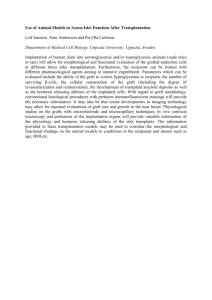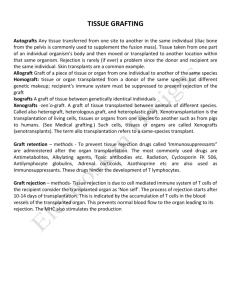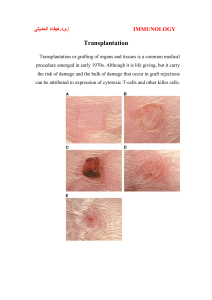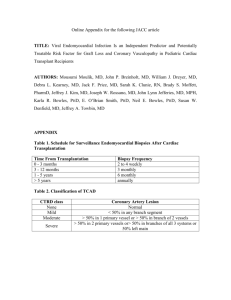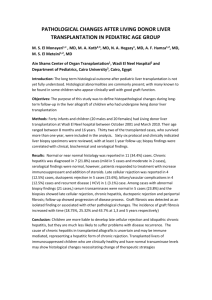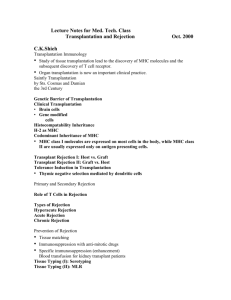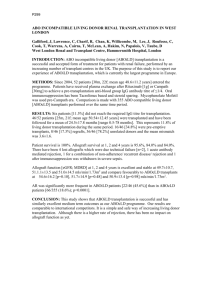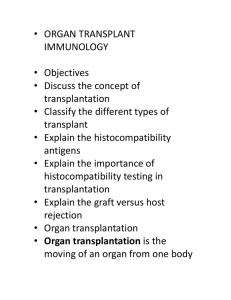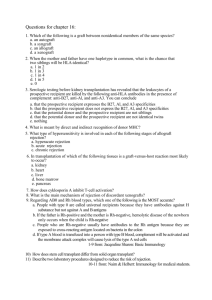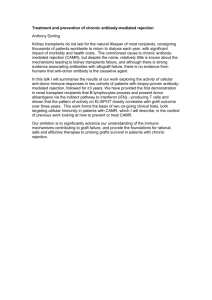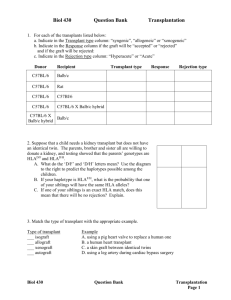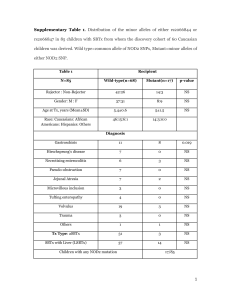transplantation and graft rejection
advertisement
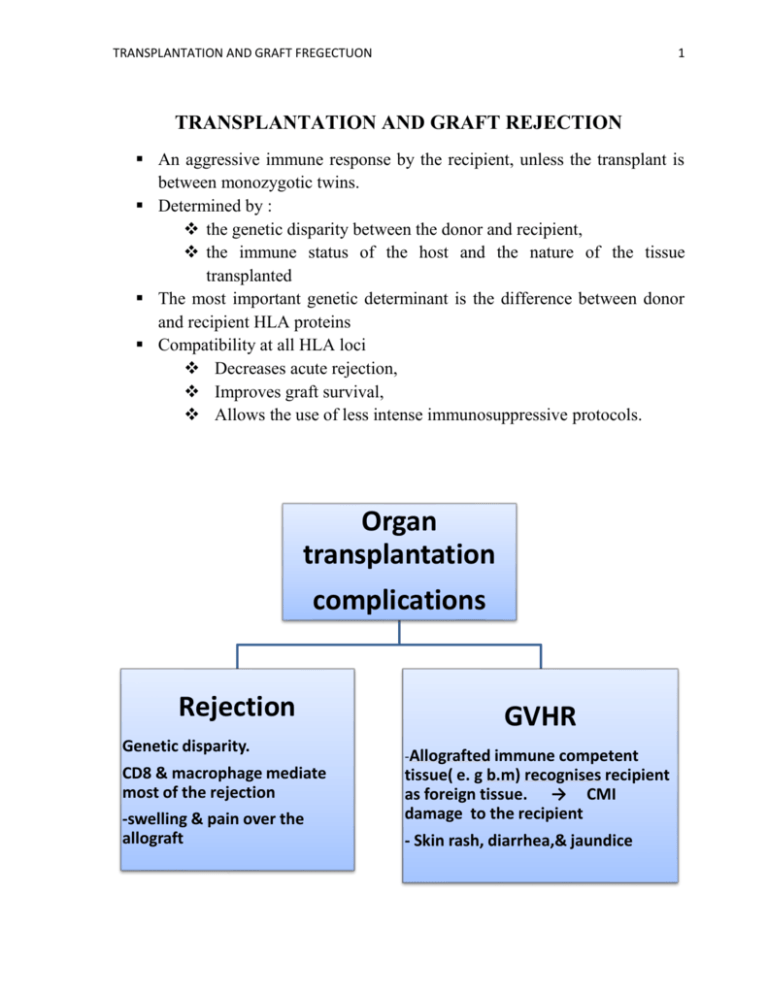
TRANSPLANTATION AND GRAFT FREGECTUON 1 TRANSPLANTATION AND GRAFT REJECTION An aggressive immune response by the recipient, unless the transplant is between monozygotic twins. Determined by : the genetic disparity between the donor and recipient, the immune status of the host and the nature of the tissue transplanted The most important genetic determinant is the difference between donor and recipient HLA proteins Compatibility at all HLA loci Decreases acute rejection, Improves graft survival, Allows the use of less intense immunosuppressive protocols. Organ transplantation complications Rejection Genetic disparity. CD8 & macrophage mediate most of the rejection -swelling & pain over the allograft GVHR -Allografted immune competent tissue( e. g b.m) recognises recipient as foreign tissue. → CMI damage to the recipient - Skin rash, diarrhea,& jaundice TRANSPLANTATION AND GRAFT FREGECTUON 2 Acute cellular rejection is the most common form of graft rejection. Chronic allograft failure (chronic rejection) is a major cause of graft loss. Investigations to avoid rejection 1. HLA typing 2. Anti-HLA antibody screening 3. Donor-recipient cross-matching: a functional assay that directly tests whether serum from a recipient (which potentially contains anti-donor antibodies) is able to bind and/or kill donor lymphocytes. Done immediately prior to transplantation. A positive cross-match is a contraindication to transplantation because of the risk of hyperacute rejection. 4. C4d staining: useful in the early diagnosis of vascular rejection. TRANSPLANTATION AND GRAFT FREGECTUON 3 COMPLICATIONS OF TRANSPLANT IMMUNOSUPPRESSION 1. infection : opportunistic infections:- CMV: ganciclovir -Pneumocystis: trimethoprim -Immunization with killed vaccines is appropriate although the immune response may be curtailed because of immune suppression. Live vaccines should not be given 2. malignancy: because T-cell suppression failure to control viral infections -Epstein-Barr virus lymphoma -human herpesvirus 8 Kaposi's sarcoma -human papillomavirus skin tumours -A small increase in the incidence of common cancers such as lung, breast or colon cancer. TRANSPLANTATION AND GRAFT FREGECTUON 4
